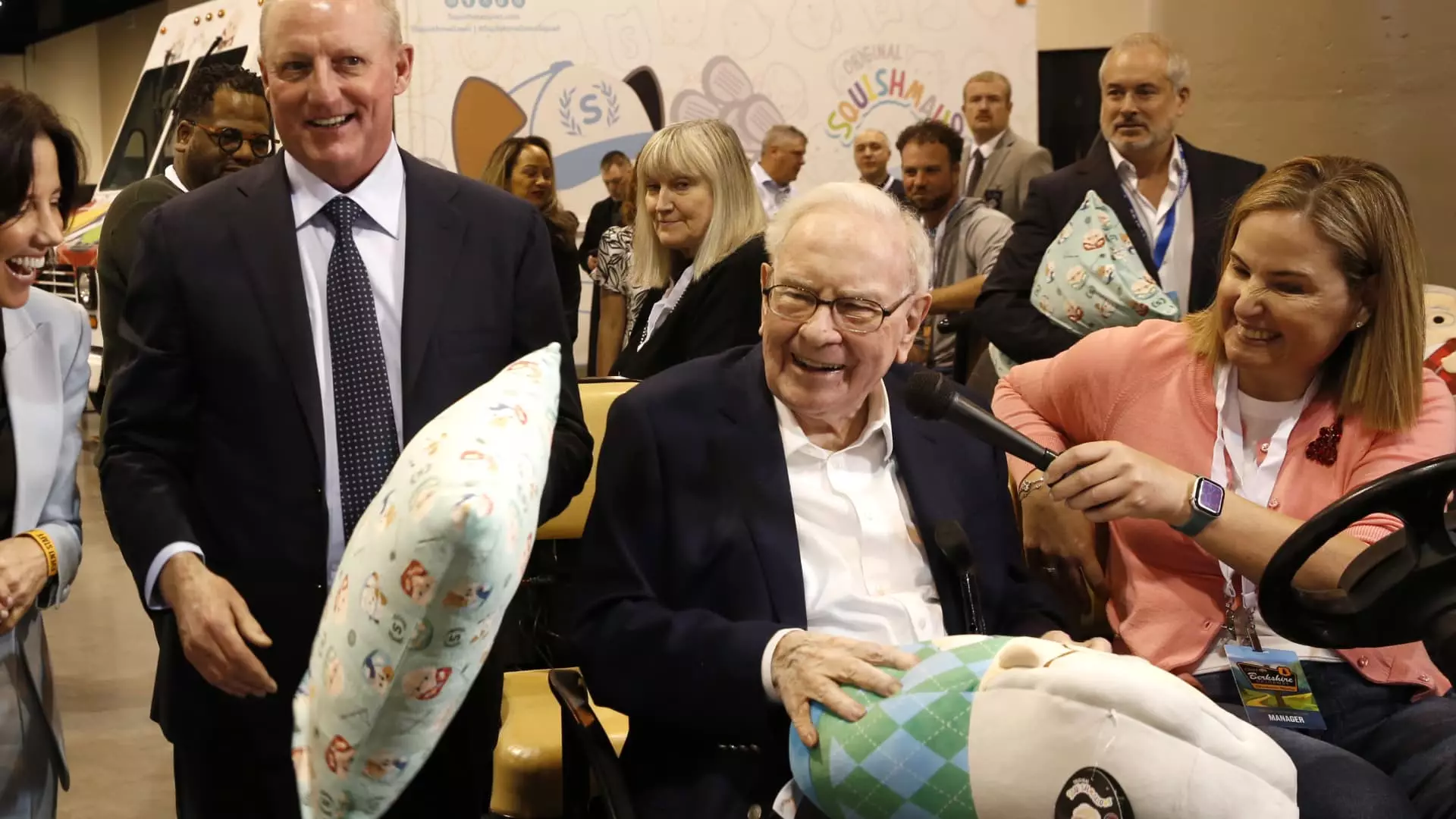The recent revelation of Greg Abel’s impending ascension as CEO of Berkshire Hathaway, following Warren Buffett’s announcement at the company’s annual meeting, marks a pivotal transition that invites scrutiny and excitement alike. While many expected this change given Buffett’s age and the prior announcement of Abel as the designated successor, the timing and circumstances surrounding it provoke deeper questions about the company’s future direction and, importantly, Buffett’s lasting legacy.
The Weight of Legacy
Warren Buffett, often dubbed the “Oracle of Omaha,” has been synonymous with astute investment strategies and a folksy charm that has won over millions of investors globally. After over 60 years of building Berkshire Hathaway into a powerhouse with diverse holdings, including Geico and BNSF Railway, the impending transition stands as both a testament to Buffett’s foresight in grooming successor leadership and a potential for radical change. At 94, Buffett is at an age where making shifts for the company he loves weighs heavily on both his conscious and subconscious.
By selecting Greg Abel as his successor, Buffett showcases a readiness not just to transition power but also to inspire confidence that the core principles making Berkshire great will persist. This is paramount, considering that Buffett himself has cemented a strong philosophy of patient, long-term value investing—one that seems to align with Abel’s approach. However, the question looms: will Abel, though a promising leader with extensive experience, mirror Buffett’s exceptional acumen or chart a course that departs from the esteemed guidelines laid out by his predecessor?
What’s In a Board’s Decision?
Buffett’s announcement caught even housing insiders off guard, including Abel himself. The mention of a board meeting to finalize the transition raises an intriguing conundrum—how much say does the board truly have in shaping Berkshire’s future? Although Buffett suggests a nearly unanimous agreement among directors regarding Abel’s elevation to CEO, the board’s dynamics can often shift loyalties and intentions, especially when the founder steps back. Relationships, like investments, require constant recalibration, and it’s worth considering whether Abel has crafted his own alliances sufficiently to navigate this intricate web of personalities and power plays.
Moreover, as Abel might be stepping into the role of CEO, there’s speculation about whether he will assume the position of chairman as well, which could further consolidate the company’s direction. If Buffett’s son, Howie Buffett, does become the non-executive chairman posthaste, how will that influence the corporate culture that has preserved Berkshire’s unique identity over the decades? Could a fresh perspective from a new leader stifle the very essence of what Berkshire Hathaway is built upon?
Energy Meets Legacy: A Shift in Management Philosophy
A notable aspect of the leadership transition is the refreshing style Abel promises to bring to the table. Buffett openly admits that Abel’s “hands-on managerial style is working better” for the company, suggesting a sharp contrast to Buffett’s more relaxed, perhaps over-relying approach. This raises concerns and hope in equal measure: while deeper involvement from leadership can lead to innovative strategies, it also begs the question of whether this slight shift may redefine the company’s identity, particularly if certain entrenched beliefs about long-term success are forsaken for the allure of a more aggressive operational style.
Abel’s track record speaks volumes; he transformed a modest geothermal firm into a diversified energy entity. However, the tendencies that have made Berkshire so successful are anchored in Buffett’s steady hand. How much of that will be retained amidst a potentially new and possibly turbulent approach to operations remains to be seen.
A Cash Fortress of Opportunities
As Abel prepares to inherit Buffett’s towering legacy, he stands before an impressive cash hoard—$347 billion—that could catapult Berkshire into new realms if allocated wisely. Buffett’s own statements indicate confidence in this aspect, asserting that he believes in Abel’s capability to flourish under pressure. Yet, the pressure of expectation can never be underestimated. With a history steeped in prudent investing, Abel has a long road ahead of him to prove that he can navigate through the economic labyrinth effectively, especially in turbulent times marked by inflation, technological disruption, and evolving consumer demands.
The next era with Abel at the helm could thus be defined less by continuity and more by adaptation—learning how to leverage that monumental cash reserve while remaining true to the firm’s foundational values. If Abel can strike that balance, Berkshire Hathaway could remain a resilient monolith of American capitalism, even as it changes hands.
As jubilant shareholders exit the stadium, waving flags of support for Buffett, they hold tightly to the hope that this change is not a signal of decline but rather a gateway to new possibilities with Abel at the helm. This uncharted territory beckons both potential and peril, and the coming months will be critical in determining which it may become.

